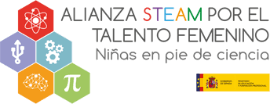FORMACIÓN EN COMPETENCIAS PARA FP
Recursos para llevar a cabo con éxito tu proyecto de FP
OBSERVATORIO DE LA FORMACIÓN PROFESIONAL
Los datos principales de la FP de todo el país
Este Observatorio agrupa en un solo portal los datos principales de la FP tanto actuales como en evolución; siendo todos ellos de fuentes oficiales que se actualizan periódicamente, donde podrás descargar datos y tablas de utilidad.
Ir al Observatorio de la FP
Publicaciones
Publicaciones sobre la Formación Profesional en España
Artículos, guías prácticas e informes elaborados por CaixaBank Dualiza en colaboración con instituciones oficiales y expertos en la materia.
Ir a publicacionesInforme 2023: La FP ante los retos sociales
La ocupación de titulados de FP aumentará en casi todos los sectores de la economía hasta el año 2035.
Ir al informe del 2023Actualidad sobre la FP
La actualidad en un solo lugar: noticias, eventos y blog
Noticia
23 de abril de 2024
Estudiantes de FP desarrollan un proyecto Dualiza para transformar una escombrera en un olivar 4.0
Noticia
23 de abril de 2024
Estudiantes de FP colaboran en la investigación biomédica con el IRB de Lleida a través de un proyecto de CaixaBank Dualiza
Noticia
23 de abril de 2024
CaixaBank Dualiza y FELE refuerzan su colaboración para impulsar la competitividad de las empresas leonesas a través de la FP Dual
Evento
Retos y oportunidades de la nueva FP Dual para las empresas de Arganda del Rey
14 de mayo de 2024
Evento
Apúntate al MOOC gratuito sobre Sostenibilidad en FP
6 de mayo de 2024
Evento
Jornada FP Visible FP de Calidad en El Ejido
7 de mayo de 2024


